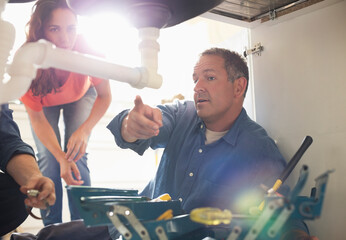What to Look Out For When Hiring a Residential Plumber
Whether you are a new homeowner or looking for a residential plumber to perform repairs, you will find several common plumbing problems to look out for. These problems include sewage odors, leaks, and service and repair issues.

Corrosion and broken pipes can cause leaking pipes or the earth to shift underneath your home. Leaving a leaky pipe unattended can cause serious damage to your home and cause your water bill to skyrocket. Plumbers can help you find the source and fix the problem, whether you are dealing with a leaky faucet or a broken pipe. If you have an older home or a home with a leaky faucet, replacing your fixtures can be a smart way to improve your plumbing system. It can also help prevent leaks. Besides, replacing the faucet or toilet may be cheaper than replacing the entire plumbing system.
Other common plumbing problems include a slow drain. The most common reason for slow drains is debris. You can remove debris from the drain using a special tool. It’s not difficult to do, but it’s not something you want to try if you aren’t a plumber. There are many plumbing tricks you can try to solve your plumbing problems. You may need to call in a professional to get the job done, but it can be worth it in the long run. You can solve your plumbing problems on your own. If you’re confident in your abilities, you can save yourself a lot of hassle and stress. However, the best way to ensure your plumbing problems don’t occur is to prevent them in the first place. The first step in that process is to know your home’s plumbing system and what to look for in the event of a malfunction.
Whether you are experiencing a sewage odor in your house or business, taking action as soon as possible is important. Not only does it smell bad, but it can be very dangerous. It can cause severe health ailments, including headaches, nausea, and asphyxiation. You can avoid these issues by having an experienced plumber inspect your plumbing system. One of the most common causes of sewer odors in your home is a P-trap that has become dry. This is a hole underneath the faucet that is prone to soap scum and bacteria. If you notice a foul smell, you may need to replace the P-trap. You can buy a replacement plug at any hardware store.
Another common cause of sewer odors is a broken vent pipe. This can be a result of an accident or the result of age and wear and tear. A broken vent pipe can also prevent proper air circulation in your home. Contact your local fire department for ventilation instructions if this is the case.
Sewage odors are one of the most disgusting home odors. A good plumber will be able to find and fix the problem quickly and professionally. Besides repairing the source of the sewer odor, they can also ensure that all fixtures are properly installed. The main gas in sewage is methane. These gases can be toxic and can cause serious health issues if not properly vented.
The most important part of your plumbing system is the vent system. This vent system is what allows the sewer odors to exit your home. If this is not properly installed, sewer gas can get inside of your home. Symptoms include dizziness, fatigue, and nausea. It can also cause a house fire. If you have a sewage odor in your home, you should check your toilet and bathroom for leaks and clogs. If these don’t help, you may need to hire a plumber to investigate the problem.
Another thing you should do is get a plumber to install a dry trap. This simple device connects to your sewer line and collects a small amount of wastewater. Eventually, this small amount will be able to block the sewer odor from entering your home.
A commercial building can be as large as an apartment complex with multiple floors and many occupants. It may have multiple bathrooms, sinks, and toilets. Its plumbing system may have more fixtures and outlets, and its draining process is more complicated. Commercial plumbing is often used on a 24-hour basis. Commercial plumbing also has a higher water pressure. This is important for high-rise buildings. It can make it difficult to snake drain lines. The plumber needs to snake drain lines from each unit and then clear them to the main sewer line. The plumber will need to inspect all drain lines in order to find and remove blockages.
